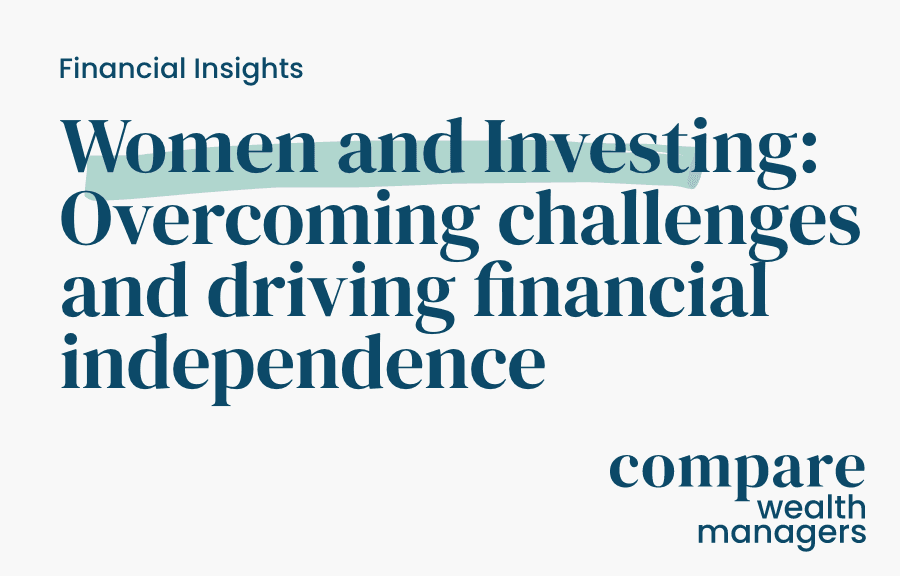The financial landscape has undergone an inspiring transformation, as women increasingly embrace leadership roles in wealth management. This evolution prompts a compelling question: Are women better investors than men?
Image: Pexels/Liza Summer
Table of contents
- The Rise of Women-Led Wealth
- Investment Performance: Women vs. Men
- Behavioural Traits Influencing Investment Success
- Bridging the Gender Gap
The Rise of Women-Led Wealth
Women now control a substantial portion of global wealth. According to RBC Wealth Management, women currently oversee 52% of the wealth, which is projected to rise to two-thirds by 2030. In the UK, Evelyn Partners highlights that women are increasingly occupying positions of greater income and wealth, driven by factors such as increased inheritance, entrepreneurship, and leadership roles.
However, a gap remains in financial advice tailored to women. Only 5% of financial advisors have specific strategies to engage female clients, and many women keep a large portion of their savings in cash, potentially hindering long-term growth. Swiss bank UBS has been training its advisers to help them understand the differences between men and women in their attitude towards finance. It began by conducting research to understand the barriers for women as investors and then asked behavioural scientists to help develop ways in which advisers could improve their communication with female clients.
Investment Performance: Women vs. Men
Empirical data indicates that women often achieve better investment returns than men. A study by Fidelity which analyzed over 5 million accounts over a decade, found that women earned returns that were 0.4% higher than those of men. Additionally, a report from Revolut showed that, in 2024, women’s investments outperformed men’s by 4%, based on data from its trading customers. While this difference may seem small, the power of compounding can lead to significant gains over time.
Another study by Barber and Odean found that men traded their accounts 45% more than women, leading to lower net returns due to overtrading. Single men, in particular, underperformed single women by 1.44% annually. This trend is not limited to retail investors. Dr. Daniel Crosby notes that female hedge fund managers have consistently outperformed their male counterparts, attributing this to women's tendencies towards patience and long-term planning
However, only 33% of women perceive themselves as investors, according to Female Invest. Furthermore, about 34% of women in a US-based survey by FinanceBuzz reported that they had not started investing, compared to only 24% of men.
Behavioral Traits Influencing Investment Success
Several behavioral factors contribute to women's investment success:
- Lower Trading Frequency: Research indicates that women generally trade less frequently than men. This behavior can lead to lower transaction costs and a reduced risk of making impulsive decisions. Olivia Newmann, a Private Client Manager at Brooks Macdonald, notes that during volatile market conditions, many investors tend to react impulsively. However, she advises against this approach: “We encourage investors to remain invested during uncertain times. While investments may experience short-term volatility, they have the potential for growth in the long run.” Women tend to trade less frequently than men, reducing transaction costs and the likelihood of making impulsive decisions. Newmann understands that in volatile times, people tend to react, but “we would encourage investors to stay invested through uncertain times. Investments can be volatile in the short term but can have the potential for growth in the long term."
- Long-Term Perspective: Women tend to adopt a long-term investment strategy, prioritizing steady growth over short-term gains. "The earlier you start saving and investing, the greater your potential for wealth growth. You'll have more time to benefit from the power of compounding," Newmann explains.
- Risk Awareness: Women tend to be more risk-aware and take fewer risks when it comes to investing. According to Megan Jenkins, Partner and Chartered Financial Planner at Saltus, "it is often reported that women are more reluctant to take financial risks than men." This reluctance may stem from the notion that women have less room for error with their finances compared to men. However, this cautious approach can result in more diversified and balanced portfolios, ultimately leading to more stable returns.
These traits correspond with findings from The Motley Fool, which show that women are less inclined to engage in speculative investments and more likely to follow consistent investment strategies.
Another key difference in the way women consider wealth planning, compared with men, is that they often favour a holistic approach — one that considers their broader life goals, values and priorities, rather than fixating solely on investment returns.
Bridging the Gender Wealth Gap
Despite these strengths, challenges persist. UBS's Gender Lens Report emphasizes the need to address systemic barriers that hinder women's financial empowerment . Efforts to provide tailored financial education and advisory services are crucial in bridging the gender wealth gap.
Emma Wheeler, the head of women’s wealth at UBS Global Wealth Management, suggested to the Financial Times that women need to build their financial confidence in order to feel comfortable taking on more risks to address the existing gaps. “We can support this by providing financial education to enhance awareness and expertise, as well as offering trusted advice.” She notes that women are already making sound investment decisions. Generally, they take a long-term approach as investors, adhere more closely to their investment strategies, trade less frequently than men, and are less reactive to market downturns. “For these reasons, their portfolios often outperform,” Wheeler says. “You could say that women are less emotional than men as investors.”
While it’s important to recognize that no gender is inherently superior in investing, evidence suggests that women often exhibit behavioural traits that enhance their potential for successful long-term investing. As the financial landscape transforms, embracing and nurturing the distinct strengths women contribute to investing will be crucial in driving inclusive economic growth.
Are you looking for a wealth manager that can help you achieving your financial goals? Start comparing options with Compare Wealth Managers today. Just click the orange “Start comparing” button to begin now or check out our 5* reviews from Trustpilot.





